The Bank of Japan is expected to raise interest rates for the first time since 2007 and dismantle its yield curve control program, marking a shift away from its aggressive monetary easing policies.

High grocery prices and inflation are becoming significant factors in voters' choices for the upcoming presidential election in Wisconsin, potentially swaying support away from incumbent President Biden.

China's private firms are facing challenges such as payment delays, a slowdown in demand, and overcapacity, leading them to change their business practices and become more cautious and risk-averse when dealing with state-owned clients.

Data from the Federal Reserve Bank of Philadelphia suggests that the U.S. economy added significantly fewer jobs in the third quarter than the Bureau of Labor Statistics has reported, raising concerns about the accuracy of employment estimates and indicating weaker economic conditions than official data suggests.

Advanced economies heavily rely on fossil fuels and are more vulnerable to energy shortages, leading to a decline in their power and economic dominance, causing social unrest, supply chain disruptions, and financial crises.

A new report from Oxfam reveals that CEOs and wealthy shareholders are taking the majority of profits from US corporations, highlighting a growing wealth inequality and rigged corporate rules.

A report from Oxfam reveals that CEOs and wealthy shareholders are reaping most of the profits from US corporations, with 90% of net profits going to the top earners, while wages for workers remain stagnant and the wage gap widens.

Americans are living paycheck to paycheck, with savings lasting about five weeks on average, despite building bigger cash cushions; mortgage refinancing has become rare due to high rates; and homebuilders are optimistic despite the expensive housing market, according to recent economic reports and surveys.
:max_bytes(150000):strip_icc()/GettyImages-1534378554-9f1a820c6c954427bf1fc68706328487.jpg)
Warren Buffett believes that the United States has experienced an unprecedented level of wealth among its citizens, with more people now being wealthy or having higher incomes than ever before, and he points to indicators such as Bank of America's average deposit figures to support this trend. However, he also acknowledges the potential effects of inflation on investment returns and advises strategies such as diversifying investment portfolios to mitigate its impact.

China's property investment falls 9.0% y/y in Jan-Feb 2024, while property sales decline by 20.5% during the same period; China seeks to revive its property sector after a regulatory crackdown.

Argentina's new president, Javier Milei, has seen a drop in inflation but a rise in poverty during his first 100 days in office, posing challenges for his libertarian-conservative government. While Milei has successfully reduced inflation, his ambitious economic reforms have been stalled, leading to concerns about the country's long-term stability. Welfare groups and the opposition have criticized the government's policies, and the Catholic Church has raised concerns about the growing number of people relying on food banks.

Cuban President Miguel Diaz-Canel is willing to engage with protesters after rare public demonstrations occurred to express grievances over worsening conditions on the island, including power cuts, food scarcity, and calls for political freedoms.

Pakistan's central bank has kept its key interest rate at a record high of 22%, amid loan talks with the IMF and efforts to curb inflation, as the nation faces significant external financing needs.

Mortgage credit applications in the US have increased recently, despite facing greater obstacles, according to a report from the Federal Reserve Bank of New York, with mortgage application rates rising to their highest level since October 2022, while rejection rates for mortgage borrowing also increased.

Governments must curb their borrowing and improve public finances before the public's trust starts to erode, warns Agustin Carstens, chief executive of the Bank for International Settlements. Failure to do so could lead to a debt crisis as interest rates are unlikely to return to their previous lows soon. Carstens emphasized that the assumption of perpetually low interest rates on which debt piles have been built is false. Fiscal consolidation needs to start immediately as many economies are projected to see rising public debt in the coming decade.

Stocks are rising ahead of central bank meetings that could influence interest rates, with the Federal Reserve expected to hold its main interest rate steady and give updated forecasts, the Bank of Japan potentially raising rates, and the Bank of England making its latest decision later in the week; meanwhile, Nvidia is expected to unveil its next-generation artificial intelligence architecture.

Chinese factories are flooding global markets with their products, leading to potential trade tensions with the United States and Europe, as China's output surpasses its domestic needs and prices for its goods continue to fall, threatening American manufacturers.

Billions of dollars in unspent COVID aid can be redirected to address America's housing affordability crisis, allowing states to build housing for people earning up to 120% of the area's median income.

Protests erupted in Santiago, Cuba, with demonstrators demanding food and power amid a deepening economic crisis, scarcity of resources, and frequent power outages, with the country's Soviet-style, centrally planned economy, U.S. sanctions, and lack of economic reforms being the underlying reasons for the crisis.

Dollar stores, such as Dollar General and Dollar Tree, are the worst offenders of "shinkflation," as they shrink their products while advertising lower prices, ultimately costing customers more in the long run.

China's economy rebounded in the early months of 2024, with retail sales and fixed-asset investment showing strength, but mixed signals indicate a potential short-lived recovery due to ongoing challenges in the property sector and the need for other investments to drive growth.

The US Defense Advanced Research Projects Agency (DARPA) is working with various companies, including Northrop Grumman and SpaceX, to establish a lunar economy by 2035, focusing on areas such as power and communications infrastructure, as well as centralized heating and cooling systems to support lunar exploration and commerce.

The Federal Reserve's upcoming meeting may result in a reduced number of projected rate cuts for 2024, which could potentially impact the stock market, although some strategists believe it may not lead to a significant sell-off.
U.S. stocks rose ahead of a week of central bank meetings, with the highlight being the Federal Reserve's meeting on interest rates, while recent reports on higher-than-expected inflation could lead the Fed to trim rate cuts this year.
The Nigerian government is allegedly spending N17.72 billion every day on fuel subsidies, with the nation using about 44.3 million liters of fuel daily, leading to increased petrol prices and a decline in the value of the Naira.

The cost of living in Italy is much cheaper compared to the UK, making it an ideal place to live long-term, according to YourOverseasHome.

African governments, including Ghana, need to improve their digital and technological capabilities in order to take advantage of the benefits of Artificial Intelligence, which could result in Africa generating $1.2 trillion in revenue by 2030.
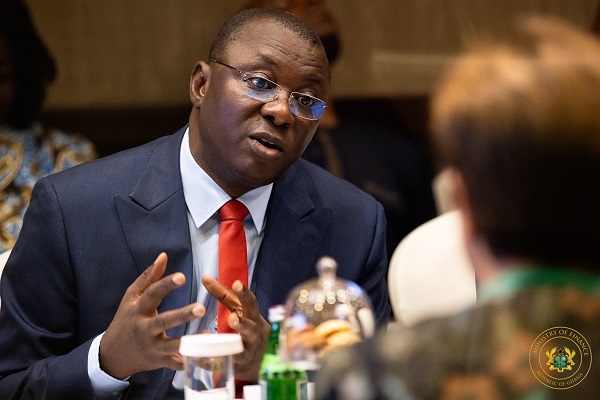
The Managing Director of the International Monetary Fund (IMF), Kristalina Georgieva, has urged African governments to embrace Artificial Intelligence (AI) in order to accelerate economic development and reshape global financial architecture and labor markets. Georgieva emphasized the need to take advantage of the benefits of AI while managing the associated risks and highlighted the potential impact of AI on job markets. She also highlighted the importance of investments in AI adoption and the green transition for increasing productivity and dynamism in the global economy.
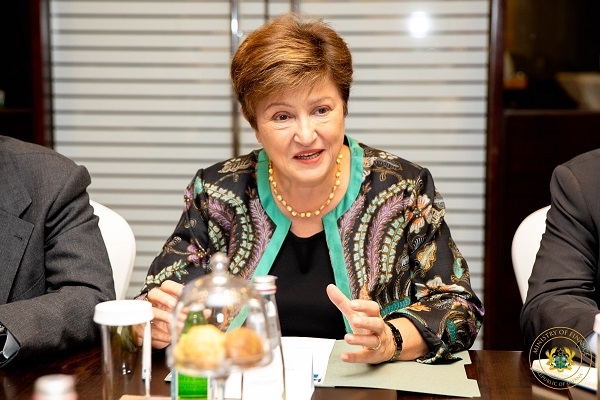
India is projected to achieve steady economic growth rates of 6.5%-7% over the long term, according to Morgan Stanley, due to infrastructure limitations and a low skilled workforce, hindering the country from reaching China's 8%-10% growth rates and replacing them as a global manufacturing hub.

The World Bank has pledged over $6 billion to Egypt, bringing the total amount of global bailout funds for the country to over $50 billion in recent weeks. The financing is aimed at supporting the government and private sector to stimulate sustainable economic growth.

The Federal Reserve is expected to hold rates steady at its upcoming meeting, and investors will be closely watching for hints on the future of interest rates; meanwhile, wages in the US have fallen sharply over the past year despite a tight labor market and high inflation.

Analysts predict that Ghana's currency, the cedi, could continue to weaken despite a $3 billion bailout from the International Monetary Fund and ongoing debt restructuring, as the country's international reserves remain thin and the upcoming election poses a risk for increased foreign exchange demand.
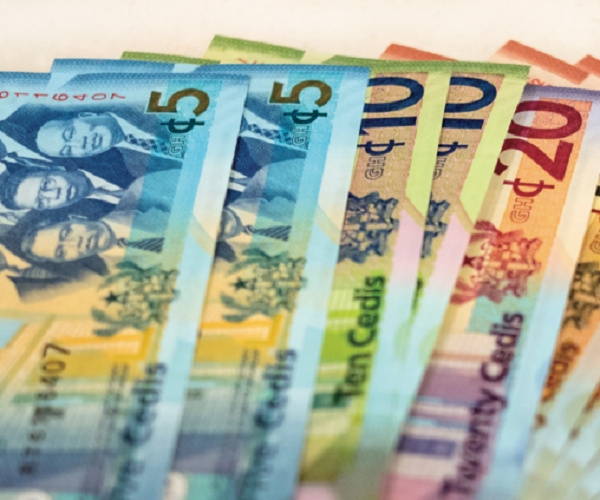
The invasion of Ukraine by Russia has resulted in the largest collapse in German living standards since World War II and an economic downturn similar to the 2008 financial crisis, leading to concerns that Germany may experience a "lost decade" and further fuel the rise of the far-right party Alternative für Deutschland (AfD).

Asia's top 20 largest countries by area in 2024, ranked in ascending order, include Malaysia, Vietnam, Japan, Iraq, Uzbekistan, Turkmenistan, Thailand, Yemen, Afghanistan, Myanmar, Turkey, Pakistan, Mongolia, Iran, and Indonesia.

Goldman Sachs Chief Economist believes that while AI may destroy employment in some areas, it could ultimately benefit the US economy in the long run.

Despite boasting about the strong economy, Joe Biden is facing a challenge as many voters are nostalgic for the economic conditions under his predecessor; Americans are still feeling the effects of pandemic-induced inflation, leading to higher prices and mortgage rates, making the cost of living more burdensome; although Biden claims that inflation is decreasing, ordinary consumers see prices today as much higher than before, affecting their standard of living; with inflation projected to plateau at 3-4% and interest rates likely to remain high, Biden's chances for re-election seem bleak, but if wages continue to rise faster than prices and housing costs decline, he may have a slim chance of convincing voters that they will be better off in the future.
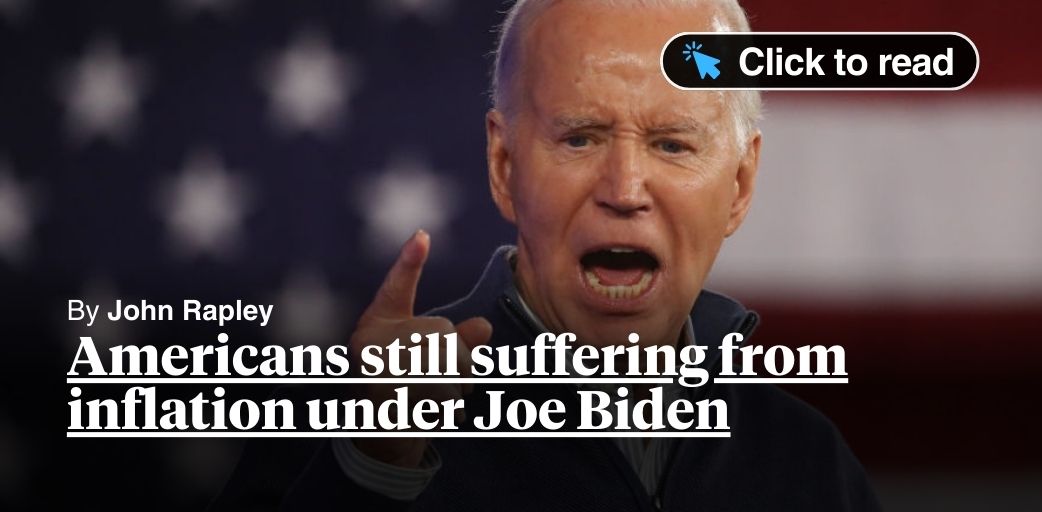
A new report by Oxfam reveals that the largest publicly traded corporations in the US prioritize wealthy shareholders and pay executives salaries significantly greater than the average worker, exacerbating economic inequality.

The Federal Reserve's monetary policy committee meeting is causing concern among investors and economists, with a shift in rate cut expectations and worries about inflation, while a government shutdown threat and housing market reports add to the uncertainties.

US home builder confidence rises to highest level since July due to lower mortgage rates and an improved pricing environment amid a continued existing home inventory shortage, according to the National Association of Home Builders.

The Economist Intelligence Unit (EIU) predicts that the Nigerian naira will depreciate in 2024, reaching a new exchange rate of N2,381 per dollar, and expects the government to increase the Value Added Tax (VAT) to 15% to meet current demands, fund deficits, and service debts.
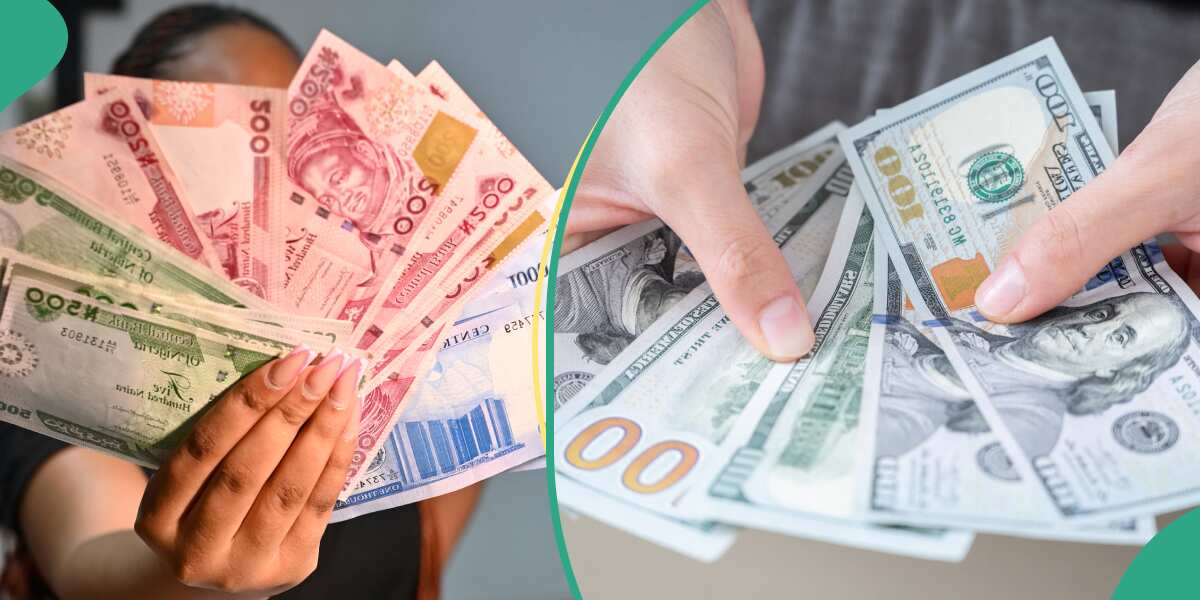
Canadian home sales decreased for the first time in three months, signaling a cooling off in buyers' urgency to enter the market.

A new report from Ned Davis Research suggests that women in their late 20s and early 30s are becoming the silver bullet for the economy, as they are having a significant impact on job participation, employment, stock market, and GDP in several developed economies. The report also highlights that women are outpacing men in labor market participation and are employed in more productive roles due to higher education levels, which is contributing to economic growth. Furthermore, the study finds that if more women enter the workforce, it could offset the negative effects of an aging population and lead to increased GDP.

Economists predict that inflation in Canada likely increased in February due to higher gasoline prices, which could complicate the Bank of Canada's plan to cut interest rates in the coming months.
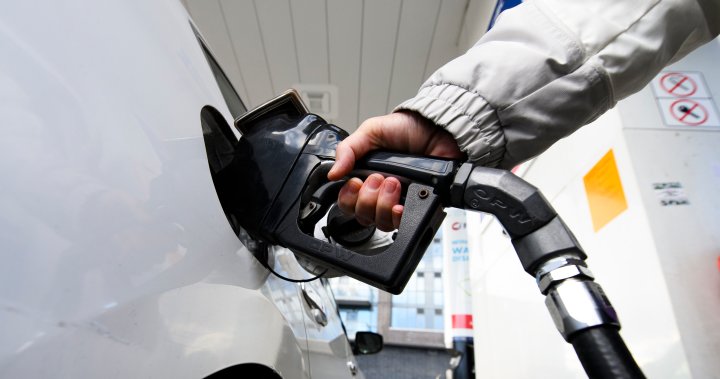
Pakistan's central bank has kept key interest rates on hold at 22% for the sixth term in an effort to bring the country's inflation rates down to 5-7% by September 2025, following a significant increase in weekly inflation.

The latest Federal Reserve interest rate hikes have resulted in a decline in household net interest income, with Americans paying $420 billion more in interest costs than the increase in interest income received.

The State Bank of Pakistan (SBP) has decided to keep the key policy rate at 22% for the sixth consecutive policy meeting, citing high inflation and risks to the economic outlook, as the newly elected government awaits an IMF review for a $1.1 billion disbursement.

India and France will launch a fund to support startups and climate-focused innovations in the Indo-Pacific region, with projects likely to be funded in the Western Indian Ocean and the broader Indo-Pacific.

China is directing domestic electric vehicle manufacturers to increase spending with local chip makers, harming US companies and furthering its goal of self-sufficiency in key industries; this move follows a similar effort that negatively affected Apple's iPhone sales and is expected to impact US chipmakers as well.
Inflation and rising grocery prices are becoming a leading concern for American voters, with many expressing dissatisfaction and considering their voting decisions based on the economic impact.

The annual inflation rate in the Euro area decreased from 2.8% in January to 2.6% in February 2024, and the European Union annual inflation rate dropped from 3.1% to 2.8% during the same period.
